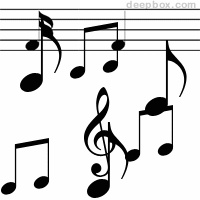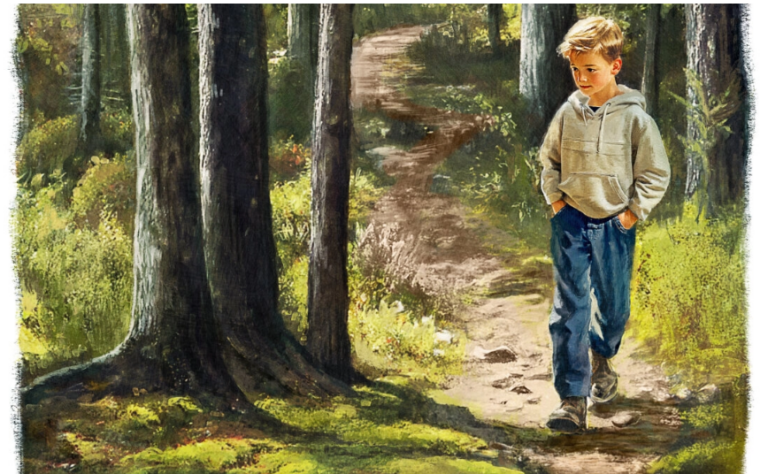

By Susan D. Harris
Instead of pulling an Elvis and shooting my TV, I sought relaxation and diversion in classical music. Eventually I even learned to appreciate opera more than I thought possible. Let snobs beware; I’m cranking Carmen in my ten-year-old Ford.
When a piece of music calls out to me like a lover calls to his mate — I must claim it and know everything about it. I want to know the composer, the writer of the libretto (if applicable), the singer (if applicable), and all the succulent details regarding the history of the piece. The histories are so complex they can lead you from a palace in Versailles to the slums of Charleston, South Carolina. Piece them all together and you form the staves that Western civilization is played on.
Let’s start with one of the most beautiful songs in history, “Song to the Moon.” Even the name of the opera that spawned it is enchanting: Rusalka. It’s the name of a water nymph — the main character in the 19th Century opera by Antonín Dvořák. Who determined it was one of the most beautiful songs in history? Well…me for starters. I’m listening to mezzo-soprano Frederica von Stade singing it on YouTube, and I’m in that nirvanic state of music enjoyment that one tries to recreate as many times as possible before mortal death.
I first heard the song while streaming www.yourclassical.org — a website where I can switch music “channels” based on my mood from minute-to-minute. I often seek out the songs I hear to play them again — that’s what I’ve done and I’m listening in stunned silence. Von Stade’s voice — her presence — Dvořák’s passionate creation — the synergy has me transfixed.
In the case of Ms. von Stade, I’m filled with nationalistic pride after learning the diva is from New Jersey. In my mind, the only thing more American than that is being from New York — something I can say safely from behind my keyboard.
I’m late in finding this golden-throated nightingale – she’s 72-years old now, and the “engagements” section of her website hasn’t been updated since 2015. I can only hope that she’ll suddenly pop up in my city to sing some of her greatest arias.
It’s not far-fetched. Something similar did happen once. I’d just discovered Louis Prima and Keely Smith while watching Classic Arts Showcase; a vintage video of their Grammy Award-winning song “That Old Black Magic” had me laughing and clapping. I wanted more, and the next day, like something that only happens in a dream, the radio announced that Keely Smith would be performing at our State Fair on the heels of her new album, Swing, Swing, Swing. The coincidence was shocking. Soon I was flaunting pictures of me and Keely hanging out. But I digress from the topic of opera, though Keely, in the opinion of many, remains one of the most gifted balladeers and swing singers in the history of belting out tunes. Ms. von Stade might even say Keely had an operatic voice; she commented once:
You know, Julie Andrews—that’s an operatic voice. Audra McDonald’s is an operatic voice. We opera singers don’t know how to belt, really, the way Broadway singers do.
Let’s go back to opera and a strange fact you’ll find if you wade into that genre: There’s a demographic of strangely obsessive people who have very strong opinions about which is the best opera, the most melodious diva, the best performance of a particular opera, best aria, and other such idealistic skirmishes like ‘Who was the best Figaro?” These people will go to the mat for their opinions, and it’s funny to see them fighting like raggedy-eared tomcats on the back fence.
We do, after all, have our own tastes in music, and those are only influenced if some external source (such as someone else’s opinion or urging) stimulates a preexisting gene; a gene that awakens and allows us to grow our music appreciation in a new direction.
Maybe my father passed that gene on to me. When my mother first met him, my father was in possession of the complete recording of Carmen, the scandalous opera by Georges Bizet. As no science will confirm, therein lays my genetic predisposition.
I have loved classical music more and more with each passing decade of life. I made the first important step of actually purchasing a CD of Edvard Grieg’s “Peer Gynt” in the 1990’s and continued from there. Opera was still a ways off, but I already had an introduction to it as I watched Italian operatic tenor Luciano Pavarotti perform, “’O Sole Mio.” It was a song I knew well — my mother played the 78 rpm by Enrico Caruso on the antique Victrola. Granted, the famed Neapolitan song wasn’t opera, but Pavarotti was — and he scored a Grammy award and worldwide attention singing “O Sole Mio” in 1980. With four decades under his belt as an opera and pop crossover artist, (and with the help of rapidly advancing technology), Pavarotti likely lured more people into opera appreciation than anyone before him.
Probably like a lot of folks, the first true opera song that carved its name in my heart was Puccini’s “Nessun Dorma” — and no, I wasn’t introduced to it through a disturbing movie ending. I heard it from a charismatic blind man with a voice that channeled the angels. Why was it Andrea Bocelli’s voice that spoke to me more than say, Pavarotti’s? Who can say? I only knew I was hooked. (Here’s a look back at Bocelli, Pavarotti, and the Trump inauguration.)
Eventually I asked someone what “Nessun Dorma” meant in English. I wish there’d been a picture taken of my face when someone translated: “No one sleeps.” Who would have thought that one of the greatest songs ever written was about insomnia? I loved it even more.
Eventually I heard the story of the opera from whence “Nessun Dorma” came: the princess Turandot, a suiter, riddles that must be answered to avoid senseless death and so on. Sadly for me, the opera was set in China and I personally never had any interest in that country or its culture. That’s when I learned one could love music from a particular opera, but not necessarily like the opera itself.
Take La Traviata for instance. As one book put it, “Nowhere, perhaps, is death by tuberculosis more lyrically romanticized than in La Traviata.” It’s true: Some of the greatest operas seem like glorified versions of Puddles Pity Party. Then you hear a recording of Maria Callas singing the main role of Violetta, and you decide you can overlook the more macabre aspects and enjoy the beautiful music.
And if you’re not familiar with Callas, you might as well forget about opera altogether. Luckily I’d accidentally stumbled across a documentary about her years ago. When I heard her sing though, I had no opinion one way or the other. It was years later, sitting in a grocery store parking lot listening to the radio when I finally “got it” — that moment I heard the quality of greatness in her voice.
And that was only the beginning; there is always so much more to hear.
According to the Arts and Cultural Production Satellite Account (ACPSA), Americans don’t mind spending more to attend performing arts events — and that includes opera performances. That isn’t exactly helping fight the age old stigma that opera is a luxury; a social snobbery for the rich.
As for me, I’m going to have to continue listening to classical music and opera via internet and radio; on my couch or in my car. My only night at the opera will likely be with the Marx Brothers.
Originally published in American Thinker 8/27/2017
Related video:
ARVE Error: need id and providerARVE Error: need id and provider







